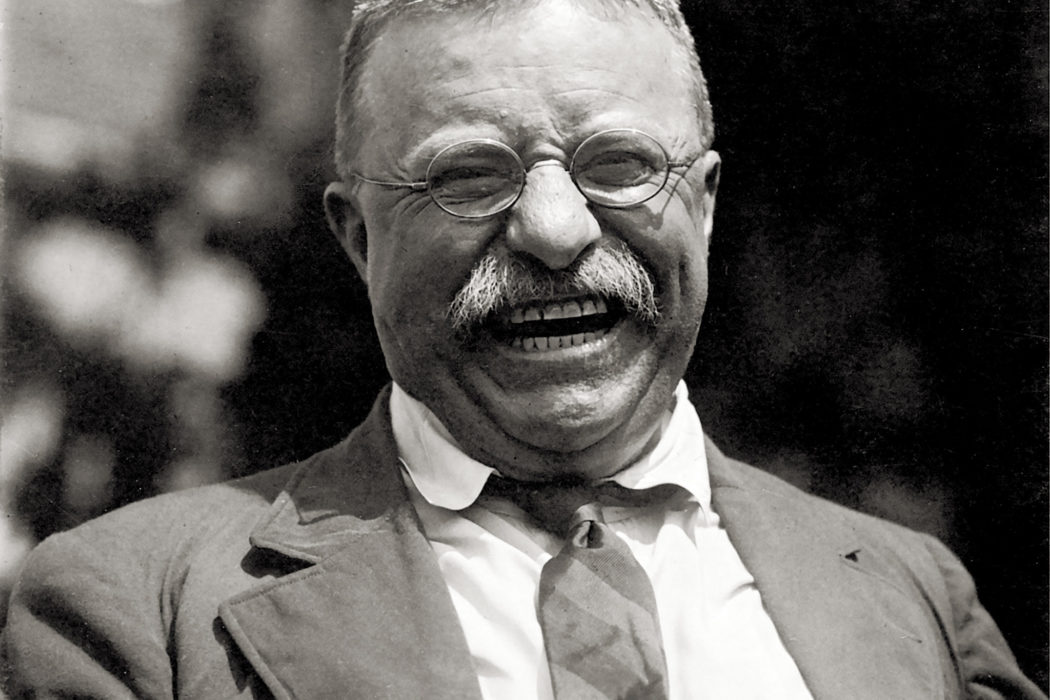“The 1912 presidential election was a unique moment in the Progressive Era,” writes scholar Brett Flehinger, “because it drew together politicians, social reformers, intellectuals, and economists onto a single stage and produced a many-sided national debate about the future of America’s economic, political, and social structure.” This is the first in a recurring series of features on the political environment of the country in which ‘Abdu’l-Bahá spoke.
PRESIDENT THEODORE ROOSEVELT DECIDED not to run for a third Presidential term in 1908. He had become America’s youngest chief executive in 1901, when President McKinley was killed by an assassin’s bullet in Buffalo. During the next seven years Roosevelt fundamentally changed the nation’s highest office. In a government system riddled with political patronage and moneyed interests, TR recognized that the office of the President enabled him to both speak to and to represent the interests of The People, directly. He called the Presidency the “bully pulpit.” At the turn of the century, the word “bully” carried more meaning than simply the negative connotation as a person who harasses the weak, indicating “superb” or “wonderful,” and was one of Roosevelt’s favorite exclamations.
In 1904 Roosevelt appointed his close political ally, William Howard Taft, to be his Secretary of War, and groomed him to be his successor as President. With TR’s support, Taft won the election of 1908 easily.

After leaving office in March, 1909, Roosevelt traveled to Africa on safari. He was a rugged outdoorsman, and had made a fortune writing books about the West. They landed in what is now Kenya, traveled through the Belgian Congo, and then sailed up the Nile to Khartoum and Egypt. The idea was to collect specimens for the Smithsonian Institution and the American Museum of Natural History in New York: the result was a slaughter of African wildlife on an unprecedented scale. Roosevelt’s expedition killed or trapped more than 11,000 animals in all. TR personally shot 296 of them, including nine lions, eight elephants, six buffalo, thirteen rhinoceroses, seven giraffes, seven hippos, and 177 antelope.
From Egypt the expedition sailed to Italy in early 1910, where Gifford Pinchot, one of Roosevelt’s close friends, traveled to meet him. Pinchot shocked TR by explaining that Taft had fired him as Chief of the United States Forest Service, and reversed Roosevelt’s popular stands on several key issues. Roosevelt and his supporters had then quietly begun to explore how to win Teddy the Republican Presidential nomination in 1912.
Taft was head of the Republican party and had most of its delegates locked up. But there was something new coming round the bend in 1912. In the past, Presidential candidates had been nominated by delegates chosen by party insiders. But this year Republican and Democratic voters in sixteen states would select their delegates in binding primary elections. In these states the rank and file of the Republican party would decide, and most of them could be counted on to vote for Roosevelt. By April 25 he had won four primaries in a row: Illinois, Pennsylvania, Nebraska, and Oregon.
Today, on May 31, 1912, the New York Times reports that Taft still holds the delegate lead, but 254 of them are being contested. The Republican National Convention begins in Chicago on June 18.







